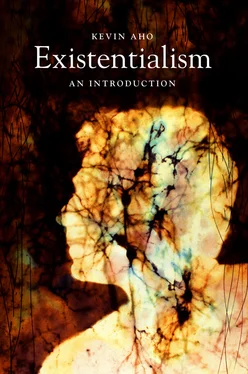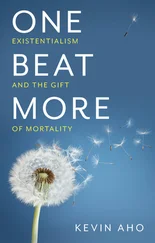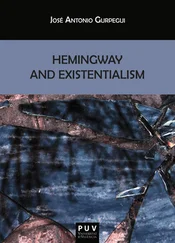The isolation that prevails everywhere, above all in our age — has not yet fully developed, it has not reached its limit yet. For everyone strives to keep his individuality, everyone wants to secure the greatest possible fullness of life for himself. But meantime all his efforts result not in attaining fullness of life but self-destruction, for instead of self-realization he ends by arriving at complete solitude. All mankind in our own age is split up into units. Man keeps apart, each in his own groove; each one holds aloof, hides himself and hides what he has, from the rest. He ends by being repelled by others and repelling them. … He is accustomed to rely upon himself alone and to cut himself off from the whole; he has trained himself not to believe in the help of others, in men and in humanity, and only trembles for fear he should lose his money and the privileges that he was won for himself. Everywhere in these days men have ceased to understand that the true security is to be found in social solidarity rather than in isolated individual effort. But this terrible individualism must inevitably have an end, and all will suddenly understand how unnaturally they are separated from one another. (1957, 279)
In order to move beyond the individualism and isolation of the ‘I–It’ attitude, we have to move beyond instrumental reason to a layer of lived experience that cannot be captured in language or thought. Buber conceives of this experience as the ‘I — Thou’ relation.
As a ‘Thou’ or ‘You,’ the other is encountered as a ‘ relation ,’ not as an object or thing that is separate from me. The “You,” says Buber, is “no thing among things nor does he consist of things” (1970, 59). In relation, we encounter others in a non-purposeful, non-manipulative, and non-objectifying way. Unlike the ‘I–It’ relation, which is always mediated through rational concepts of productivity and usefulness, the ‘I — You’ relation is “unmediated” (62–63), that is, there is nothing conceptual that gets in the way or intervenes in the encounter. It is a mode of relating that is immediate and direct, one where we feel ourselves bound together in a reciprocal, inter-human relationship. Buber suggests that this relational way of knowing the other is already articulated in the Hebrew Bible. When the Bible speaks of knowing God, it is not referring to conceptual knowledge through a detached, subject-object model, but to the ‘I and Thou,’ to the immediate relational presence of God. This is why, as Walter Kaufmann explains, the Hebrew name for God as ‘ YHVH ’ is so instructive. The word literally means “He is present” (1970, 26). Relational knowledge pulls us out of the spell of separation, resurrecting our sense of “wholeness” as persons and co-presence with others (Buber 1970, 69–70). And it is a knowledge that can only be felt; it cannot be rationally explained or discovered. “The You encounters me by grace,” writes Buber; “it cannot be found by seeking” (62). In order to be open and ready for God's grace, we need to give up or release ourselves from the illusory security of the ‘It-world’ and from our selfish need to control and objectify others. “What has to be given up,” then, “is the false drive for self-affirmation” (126). Being ready for grace in this way is “a finding without seeking” (128).
Although it is difficult to describe, Buber believes we often have experiences of the ‘I — You’ relation in our ordinary lives. If I am walking down a busy sidewalk, for instance, and pass by a homeless man, I usually encounter him as an object. I notice various thing-like aspects, his ragged clothing, his dirty hands and hair, his lowered head and worn shoes. In these observations, I remain at a cool distance, separate and detached from him. But when he raises his head as I walk by, I happen to directly look into his eyes. In this moment, the objectifying ‘I–It’ relation collapses, and I encounter this man immediately and directly as a ‘whole person.’ In the blink of an eye, I am pulled out of my self-absorption and am present and open to him as a ‘You,’ and he is present and open to me as a ‘You.’ In this experience of mutual recognition and openness we are exposed and vulnerable to one another. This experience is ambiguous; it is both threatening and consoling. The presence of the ‘You’ is threatening because it exposes the fact that I am not a self-affirming ego but a frail being who is attached to and dependent on others. But the ‘You’ is also profoundly consoling because it reveals that I am not isolated and alone, that my experience is bound up with others like me who are also suffering and vulnerable, where “all is spun with a single thread” (121). Buber offers a moving description of this tension between horror and consolation in his masterwork I and Thou :
At times when man is for once overcome by the horror of alienation between I and world, it occurs to him that something might be done. Imagine that at some dreadful midnight you lie there tormented by a waking dream: the bulwarks have crumbled and the abysses scream, and you realize in the midst of this agony that life is still there and I must merely get through to it — but how? How? Thus feels man in the hours when he collects himself: overcome by horror, pondering without direction. And yet … Henceforth, when man is for once overcome by the horror of alienation and the world fills him with anxiety that the I is contained in the world, and that there really is no I, and thus the world cannot harm the I, and he calms down; or he sees that the world is contained in the I, and that there really is no world and thus the world cannot harm the I, and he calms down. (120–121)
Buber's theistic existentialism is strikingly different from Kierkegaard's, where belief in God involves the isolated subject who, in ‘fear and trembling,’ makes a leap of faith toward his own subjective truth. On Buber's account, Kierkegaard's focus on the inner life of the individual betrays the idea that we can never fully realize and understand ourselves from a solitary vantage point. It is only by the grace of inter-human relations that I can be true to myself and genuinely realize who I am. “The individual,” writes Buber, “is a fact of existence insofar as he steps into living relation with other individuals. … The fundamental fact of human existence is man with man” (Buber 1965, 203, cited in Silberstein 1990, 127). Interpreting existence in terms of mutual dependency introduces a moral component to the act of self-creation, one that requires us to be open, caring, and non-judgmental toward others. Marcel envisions this intersubjective openness in Catholic terms of “ agape (charity) or philia (attachment)” (2005, 181) that can serve as a corrective to the selfishness and greed of modern life. This stance is not to be understood in a Kantian sense, of a ‘moral formalism’ that brings all human acts under a set of rational and universal commands. This is impossible because “no two [human] beings, and no two situations are really commensurable with each other” (181). It is not necessarily a moral but an ontological recognition of who we are as intersubjective beings that are vulnerable and mutually exposed. This recognition, as Unamuno writes, “may serve as the basis for an ethic” (1954, 261) because it has the power to shake us out of our everyday self-absorption and awaken us to the fact that we are already involved in the lives of others and affectively bound together in our shared joy and suffering. Levinas will develop this idea, referring to ‘ethics as first philosophy,’ one that is already rooted in our intersubjective life, that is, in our concrete and situated relations with others and is, in this sense, always prior to any form of detached or abstract philosophizing.
Читать дальше












